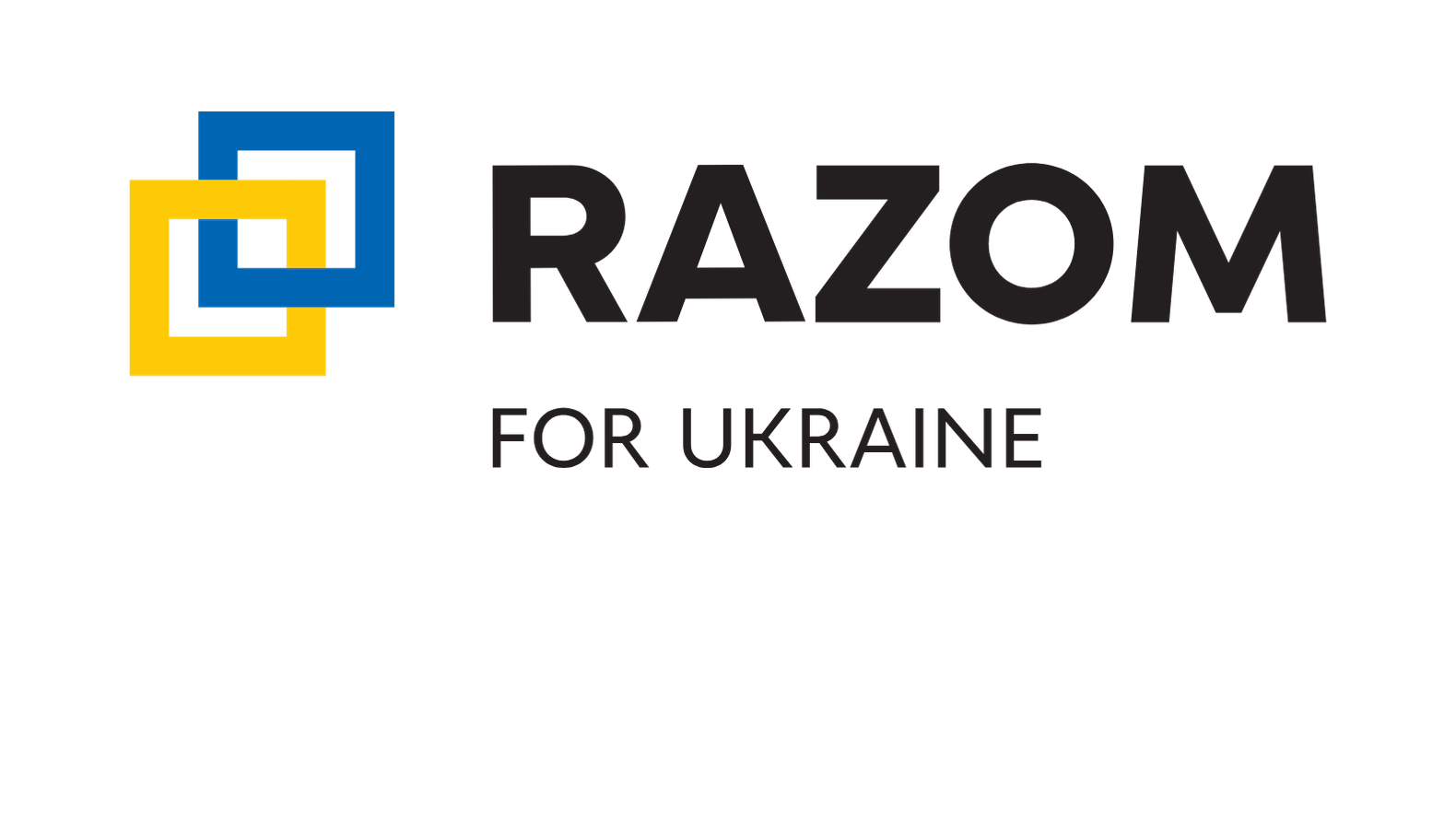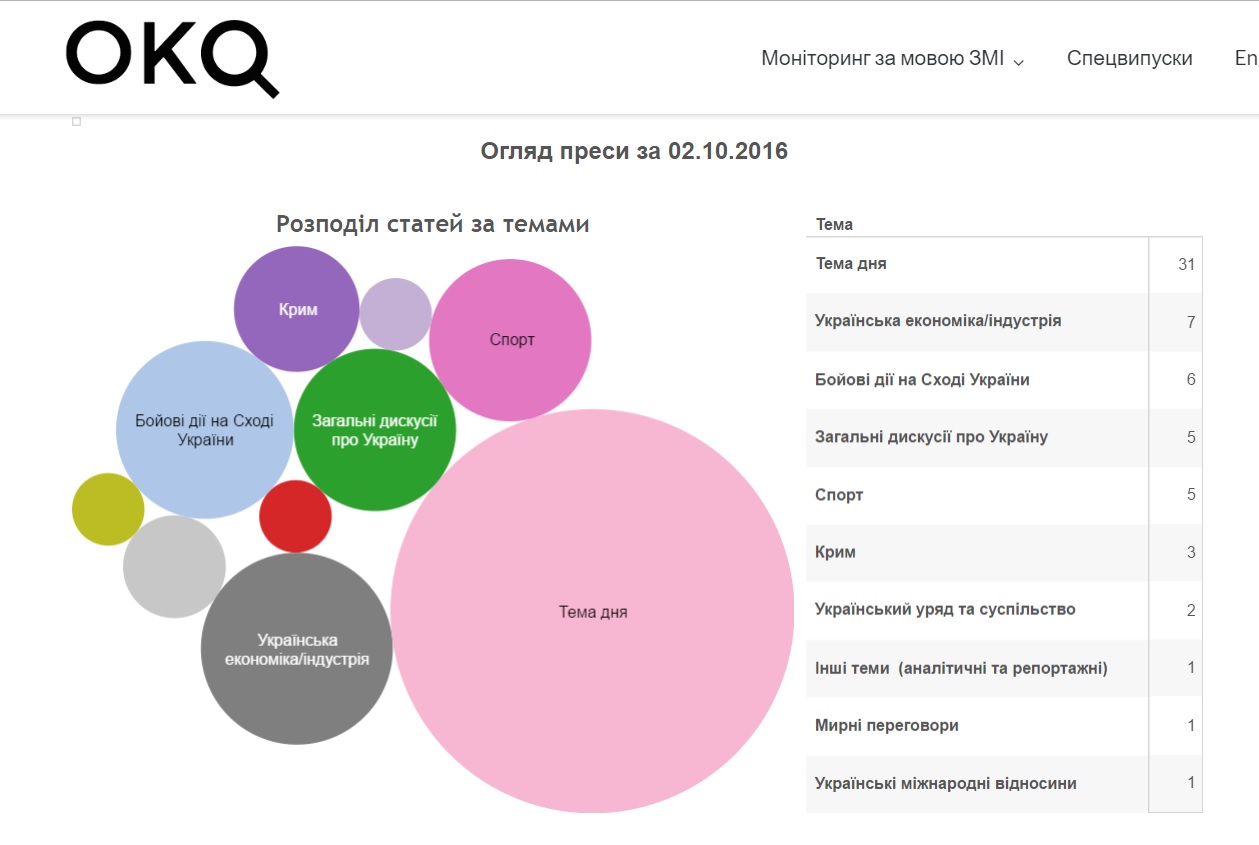In September 2014, Razom, in collaboration with the Agency of Image of Ukraine, established Project OKO — a public, politically independent project — in order to monitor mentions of Ukraine in the international media. In light of the ongoing war in Ukraine and amid manipulative news campaigns and propaganda disseminated by other actors, the project serves as an important “big picture” reflector of Ukraine’s image in today’s media.
Project OKO has been effectively used as an analytical tool for media, municipalities, bloggers, analytical centers, and NGOs.
The project helps answer 4 major questions:
- What is the current image of Ukraine?
Where and in what context is Ukraine mentioned? What is the perception and attitude toward the country? What do politicians and influential media voices say about Ukraine? How is Ukraine discussed in social networks? - How is information about Ukraine disseminated?
Who are agents of propaganda about Ukraine? Where does information appear first? Who reposts and shares information? - What information is resonant?
What has become the top news about Ukraine? How accurately are events occurring in Ukraine presented? - How can we establish a better image for Ukraine in the media?
It is necessary to first understand: what forms the image of Ukraine; what events, facts, materials influence the perception of Ukraine; what Ukraine is associated with. Such understanding allows us to think of the ways to influence/transform the international image of Ukraine.
How does it work?
OKO is an automatic monitoring program, based on Google and Bing search engines. It sorts out articles about Ukraine by language, date, popularity on Facebook, and image sentiment – positive, negative or neutral. Later, volunteers sort out the material by topic.
Sample of report
Most popular articles for October 2, 2016, grouped by the category with discussions about MH17* being the leading theme of the day. Report includes the article’s name with an active link, its source and social impact (likes, shares and comments).
In numbers:
Today, the project database includes around 1 million articles about Ukraine in 12 languages over 1.5 years.
The OKO results:
Publications at: VoxUkraine, platfor.ma, and others; EGAP – e-governance for government accountability and public engagement.
Special reports were presented on corruption, Nadia Savchenko, Russian convoys to Ukraine, MH17 catastrophe, clashes by Ukrainian parliamentary representatives in Kyiv, political prisoner Oleg Sentsov, fire at oil depot near Kyiv.
Special report on MH17 was presented at the UN in September 2015.
Our team:
Lyuba Shypovych: project CEO (Ukraine) /CTO at Odesa region municipality.
Taras Galkovskyi: project CTO (USA)/Senior engineer, Google.
Iryna Kupchynska: Editor in Chief (Ukraine).
Tetyana Dzhula: Associate editor (USA).
We are working with volunteers all around the world.
English language reports Polish language reports
Editors/Annotators: Editor:
Iryna Brehey (USA) Oksana Dan (Ukraine)
Tetyana Dzhula (USA) Annotators:
Olga Boyaryntseva (USA) Roman Hraniuk (Poland)
Volodymyr Levytskiy (USA) Andry Yan (Poland)
Iryna Chornopys (USA)
Natalia Smyhora (USA) Portuguese language reports
Olena Bedenko (USA) Editor: Tetyana Franchuk (Portugal)
Data analysis:
Serhiy Sokolenko (USA)
Henrikh Karpynskyi (USA)
Anna Kovalchuk (Ukraine)
Visit the project website at www.ukroko.org
To stay informed, follow the project news on www.facebook.com/monitoringoko
* MH17 – Malaysia Airlines Flight 17, an international passenger flight from Netherlands to Malaysia, shot down on July 17, 2014, in the air over Eastern Ukrainian region of the ongoing war in Donbass. All 283 passengers and 15 crew members were killed.


